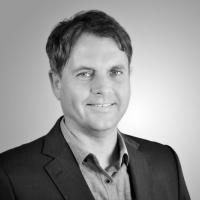Communicating Science: An Introduction to the Principles of Knowledge Transfer and Knowledge Brokerage
- Presentation
- Date
-
-
- Location
- Venice (Italy) and Spittal (Austria)
- Lecture
-
Beatriz Medina (Amphos21)
Sustainable river basin planning and management are not "business-as-usual" approaches, creating exceptional challenges for water managers across Europe. To address these challenges, additional knowledge and know-how in designing dissemination activities and management approaches are needed. Ulf Stein from Ecologic Institute and Beatriz Medina from Amphos21 held a lecture on "Communicating Science" as part of the second WaterDiss2.0 Summer School on "Increasing Sustainability in River Basin Planning and Management." This introduction to the principles of knowledge transfer and knowledge brokerage focused on the question of how to enhance the connectivity between applied European water research and policy making. The presentation slides are available for download.
This knowledge is to a large extent generated by EU-funded research, which, however, is insufficiently applied to address the challenges encountered in the implementation of the EU-WFD. Under the banner of the Science-Policy Interface (SPI), the WaterDiss2.0 project supports dissemination and innovation processes, helping key actors to improve processes and methodologies in water management in a timely manner.
Talented young researchers and freelancers from the government, academic and private sectors of various European Countries convened in Venice, Italy from 5 to 11 August 2013 as part of the second WaterDiss2.0 Summer School on "Increasing Sustainability in River Basin Planning and Management: concepts and tools for river restoration".
Ulf Stein from Ecologic Institute and Beatriz Medina from Amphos21 held a lecture on Communicating Science. This introduction to the principles of knowledge transfer and knowledge brokerage focused on the question of how to enhance the connectivity of applied European water research and policy making. In the subsequent group work exercise the participants learnt how to elaborate an Individual Dissemination Strategy (IDS) at the research output level.
The intensive one-week training event was organised and chaired by ESKTN and CIRF to provide insights into solutions for better water management and to accelerate the transfer and diffusion of current research and knowledge. The Summer School programme was based on the participation of some of the most relevant EU-funded research projects dealing with the above mentioned topics: OPENNESS, SCENES, REFRESH, REFORM, WISER, and IMPACT.
The objectives of the Summer School were to:
- disseminate the latest and most relevant results coming out from EU funded research on river restoration and sustainable and integrated river basin planning and management
- help participants in defining relevant research topics in the implementation of the Water Framework, Floods and related EU directives;
- provide a forum for talented young researchers and freelancers from all over Europe for exchanging ideas and establishing a research and professional network.
The students discussed approaches for drafting dissemination strategies with staff, consultants, scientists, and other experts. Important discussion topics included the need for a common understanding of communication principles among scientists. In particular, applied research must capitalise the mutual advantages that information-sharing and collaboration with local water managers, policy makers, and other stakeholders offer.



